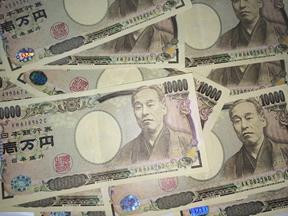Japan has slipped into a recession, leading to the loss of its position as the world's third-largest economy-a title now held by Germany. This shift comes as Japan's Gross Domestic Product (GDP) shrank at an annualized pace of 0.4% in the final quarter of 2023, as reported by the Cabinet Office. This contraction, following a 3.3% annualized decline in the previous quarter, marks two consecutive quarters of economic shrinkage, the technical definition of a recession.
The downturn starkly contradicted market expectations, with economists previously forecasting a 1.4% growth for the October to December period. The decline in Japan's economic performance was primarily due to weak domestic consumption, which saw all major domestic demand categories, including consumer spending, in the negative. Consumer spending, which accounts for half of the economy, fell by an annualized 0.9% in the fourth quarter, exacerbated by higher prices for food, fuel, and other goods.
Neil Newman, a Tokyo-based strategist at Japanmacro, highlighted the impact of the weak yen on the cost of living, given Japan's heavy reliance on imports for its base energy requirements and food. The yen's 6.6% decline against the US dollar since the start of the year has further strained consumer budgets.
Adding to the economic woes was a significant earthquake that hit the Noto Peninsula on January 1, leading to a natural disaster's typical dampening effect on consumer spending. The quake, which resulted in over 200 deaths and more than 1,000 injuries, has been cited as a factor likely to exacerbate the consumption downturn in January.
Despite the recession, Japan's external demand, buoyed by an 11% jump in exports facilitated by the weak yen, contributed positively to the economy. This external demand, including a sharp rise in tourist spending, has been a silver lining amidst the domestic consumption gloom.
Economists remain optimistic about a moderate rebound in the coming months. Min Joo Kang, a senior economist at ING Group, expects a recovery in private consumption and investment, driven by stabilization in inflation and expected wage growth, alongside strong corporate earnings and demand for IT. Similarly, Capital Economics and Goldman Sachs anticipate a recovery, with the latter forecasting 1% growth in the first quarter of 2024.
Despite the current recession, Japan's equity market has shown resilience, with the Nikkei 225 index experiencing significant growth, buoyed by ongoing corporate reforms and improved return on equity. Morgan Stanley's reaffirmation of a bullish stance on Japan's equities underscores the market's optimism, despite the economic contraction.
As Japan navigates this challenging economic landscape, the global community watches closely, with the country's ability to bounce back from this recession holding implications not just for its own citizens but for the global economy at large.






